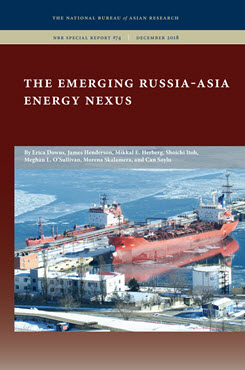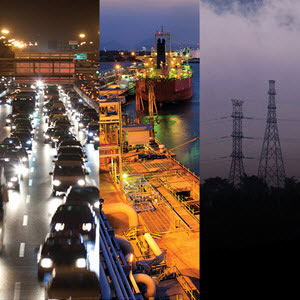The Leaders of Russia’s Energy Pivot to Asia
This essay examines Russia’s significant hydrocarbon resources in its eastern regions, which provide an obvious source of exports for Asia-Pacific countries, and assesses whether a natural balance can be found between the commercial, political, and strategic issues that these energy links naturally create.
EXECUTIVE SUMMARY
MAIN ARGUMENT
Russia’s large oil and gas resources in East Siberia and the Russian Far East have been stranded during most of the post-Soviet era due to the lack of an obvious market. However, economic growth in the Asia-Pacific has provided an obvious outlet for these hydrocarbons, and the Kremlin has been encouraging its main energy companies to turn their attention to the east. This “pivot to Asia” has been further encouraged by Russia’s increasingly difficult relations with its historic partners in the West following the annexation of Crimea in 2014 and the subsequent imposition of U.S. and EU sanctions. In the oil sector, Rosneft has led the move to increase exports to Asia. But although this infrastructure was intended to diversify opportunities in the region, in reality Russia’s oil exports are dominated by sales to China. In the gas sector, Gazprom is no longer the only major player. Rosneft has been pursuing its own projects, while Novatek has emerged as Russia’s liquefied natural gas (LNG) champion. Overall, a natural marriage between Russian resources and Chinese demand is starting to take shape, and oil and gas exports could become an important foundation for the strengthening of ties between the two countries over the next few decades.
POLICY IMPLICATIONS
- Russia and China are obvious energy partners, given the former’s huge resources and the latter’s rapidly growing demand. These natural forces are now being underpinned by complementary geopolitical considerations.
- U.S. and EU sanctions on Russia, as well as the expanding U.S. trade war with China, are increasing the attractiveness of Russia’s oil and gas resources as a source of imports to China.
- Russia’s reliance on Western markets is set to decline over the next decade as it increases exports to the east. In particular, talk of constructing a second and third gas pipeline to China and the rapid expansion of LNG developments in the Arctic underlines this trend.
- The Arctic could become a key region for the Russia-China partnership, as it is the one area in which Russia has real bargaining power.
James Henderson is Director of the Natural Gas Programme at the Oxford Institute for Energy Studies.



